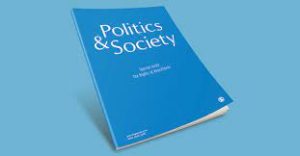The Role of Civil Society Pressure in Promoting Human Rights: Lewis 2009
In this research paper, we explore the concept of civil society pressure as a crucial factor in promoting human rights. Drawing on Lewis’s work from 2009, we argue that civil society plays a pivotal role in advocating for human rights by exerting pressure on governments, institutions, and other key actors. While acknowledging that other potential explanations exist, we will focus on Lewis’s argument as the primary framework for our analysis. However, we also recognize the importance of considering alternative perspectives and will incorporate them into our argument where relevant.
Influential Arguments for Civil Society Pressure on Human Rights
Lewis 2009 Lewis (2009) asserts that civil society pressure catalyzes the promotion of human rights. Civil society encompasses various non-governmental organizations, grassroots movements, and advocacy groups that mobilize citizens, raise awareness, and pressure governments and other power holders to respect and uphold human rights. Lewis emphasizes that civil society’s ability to hold governments accountable and demand change is pivotal in driving human rights advancements. This argument aligns with the understanding that collective action and social mobilization can significantly influence political processes.
Finkel 2004, 2006 Finkel (2004, 2006) presents the insurance policy argument, which complements Lewis’s perspective on civil society pressure. The insurance policy argument posits that governments are more likely to respect human rights when they face domestic pressure from civil society. Finkel argues that governments view civil society organizations as essential stakeholders who can influence international public opinion, foreign aid, and investment decisions. Consequently, governments may adopt human rights reforms as “insurance” to mitigate negative consequences from international scrutiny or pressure.
Takemoto 2007, Arizala 2010 Takemoto (2007) and Arizala (2010) propose the World Bank argument, which complements the concept of civil society pressure by focusing on the role of international financial institutions. They argue that the World Bank’s conditionality requirements, such as including human rights clauses in loan agreements, can indirectly promote human rights. The presence of such clauses creates incentives for governments to undertake human rights reforms to maintain or gain access to global financial resources. This argument suggests that civil society pressure can be augmented through the leverage of international financial institutions, thus reinforcing the impact of human rights advocacy efforts.
Counterarguments and Refutations for Civil Society Pressure on Human Rights
While Lewis’s argument and the complementary perspectives provide valuable insights, it is essential to acknowledge counterarguments to present a comprehensive analysis. Some counterarguments may challenge the effectiveness of civil society pressure in promoting human rights. For example:
State Sovereignty: Critics argue that civil society pressure might be perceived as interference in a state’s internal affairs, potentially undermining the principle of state sovereignty. They contend that governments should be able to address human rights issues without external pressure.
Refutation: While respecting state sovereignty is important, civil society pressure should be essential to a vibrant democracy. Promoting human rights transcends national borders, and civil society organizations can act as independent watchdogs, fostering transparency and accountability.
Cultural Relativism: Another counterargument asserts that human rights are culturally specific and that external pressure from civil society organizations may impose Western values on societies with different cultural norms and practices.
Refutation: Human rights are universally grounded in internationally recognized norms and standards. Civil society pressure can help bridge cultural gaps by advocating for rights fundamental to human dignity, engaging in dialogue, and respecting local contexts.
In conclusion, this paper presents Lewis’s argument on the pivotal role of civil society pressure in promoting human rights. By exerting pressure on governments, civil society organizations can influence policy reforms and hold power holders accountable. The insurance policy and World Bank arguments provide complementary perspectives that reinforce the impact of civil society pressure. While counterarguments exist, acknowledging them allows for more robust analysis and underscores the importance of ongoing research and discourse in human rights promotion.
References:
Civil Society Pressure in a Globalizing World” – Oxford Research Encyclopedia of Communication:
World Bank. (n.d.). Topics. [online] Available at: https://www.worldbank.org/en/topic/governance/brief/civil-society-and-democratic-governance






